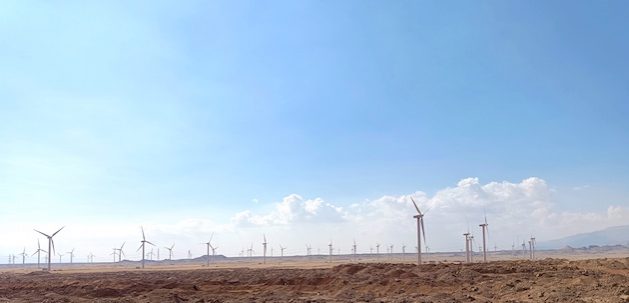Egypt Racing to Supply Wind, Solar Energy to Greece, EU via Submarine Cables

Cairo, Dec 01 (IPS) - As Europe braces for an unusual winter due to a global energy crisis, Greece is embarking on one of Europe's most ambitious energy projects by connecting its electricity grid to Egypt's.
An underwater cable will transport 3,000 MW of electricity to power up to 450,000 households from northern Egypt to Attica in Greece.
In October, the two countries agreed to construct the Mediterranean's first undersea cable to transport electricity generated by solar and wind energy in North Africa to Europe. The project's total length is 1373 kilometres.
The Copelouzos Group is in charge of the project, and its executives met with Egyptian leaders in October to speed up the process.
The agreement comes at a time when Greece, Cyprus, and Israel want to invest $900 million in constructing a line connecting Europe and Asia that will be the longest and deepest energy cable across the Mediterranean.
At a ceremony in Athens, Greek Energy Minister Costas Skrickas and his Egyptian counterpart Mohamed Shaker signed a memorandum of understanding on the project.
"This connection benefits Greece, Egypt, and the European Union," Skrickas said.
He explained that the project would help to build an energy hub in the eastern Mediterranean and improve the region's energy security.
Besides boosting the share of renewable energy sources in the energy mix and lowering greenhouse gas emissions in the energy sector, the project is anticipated to enable the export of renewable energy from Egypt to Greece in periods of high renewable energy generation and vice versa.
According to Dr Ayman Hamza, spokesman for the Ministry of Electricity, the Egyptian-Greek electrical connectivity project has significant technical, economic, environmental, and social benefits. The project aims to establish a robust interconnection network in the Eastern Mediterranean to increase the security and dependability of energy supplies, as well as to assist in the event of transmission network breakdowns, interruptions, and emergencies, and to raise the level of security of electrical supplies.
The project, scheduled to start in 2028, is a significant component of the two nations' ongoing strategic relations and cooperation. It will speed up the development of the energy corridor by increasing the supply of electricity to Egypt and Greece while balancing energy demand, encouraging responses to the challenges of climate change, and reducing emissions, all of which will contribute to the corridor's continued growth, Hamza told IPS.
"We have 16 memorandums of understanding related to green hydrogen," he explained, adding that "there is a great demand from investors to invest in renewable energy, whether the sun or wind."
"On the margins of the COP27 climate conference, it is expected that extremely major agreements on the level of green hydrogen and others, with great experience, will be signed," Hamza elaborated.
The possibility of Egypt increasing its reliance on renewable energy, he continued, is made possible by a large number of investors pouring money into solar and wind energy. He stated that Egypt would become a regional renewable energy hub.
Egypt has electrical interconnection lines with Libya and Sudan, and we are collaborating with other African organizations to take significant steps to connect Africa and Europe through electrical interconnection. Because Africa is a major energy source, this will benefit both continents, the spokesperson continued.
According to Dr Farouk Al-Hakim, Secretary-General of the Egyptian Society of Electrical Engineers, Egypt's export of electricity indicates a surplus, which generates a significant economic return, strengthens Egypt's political position, and transforms Egypt into a regional energy hub, in addition to the numerous job opportunities created in operation and maintenance.
Al-Hakim told IPS that Egypt has a significant surplus due to the installation of three enormous power stations in the past several years in the administrative capital, Burullus, and Beni Suef, as well as solar plants, including the Benban facility, which is the biggest in Africa and the Middle East.
The electrical connection currently offers many benefits, he continued, particularly given that Europe, like most other nations worldwide, is experiencing an energy crisis due to the Russian-Ukrainian conflict. Therefore, it is a good idea to start with two nations that have shared a history with Egypt, such as Greece and Cyprus, he added.
IPS UN Bureau Report
Follow @IPSNewsUNBureau
Follow IPS News UN Bureau on Instagram
© Inter Press Service (2022) — All Rights Reserved. Original source: Inter Press Service
 Global Issues
Global Issues